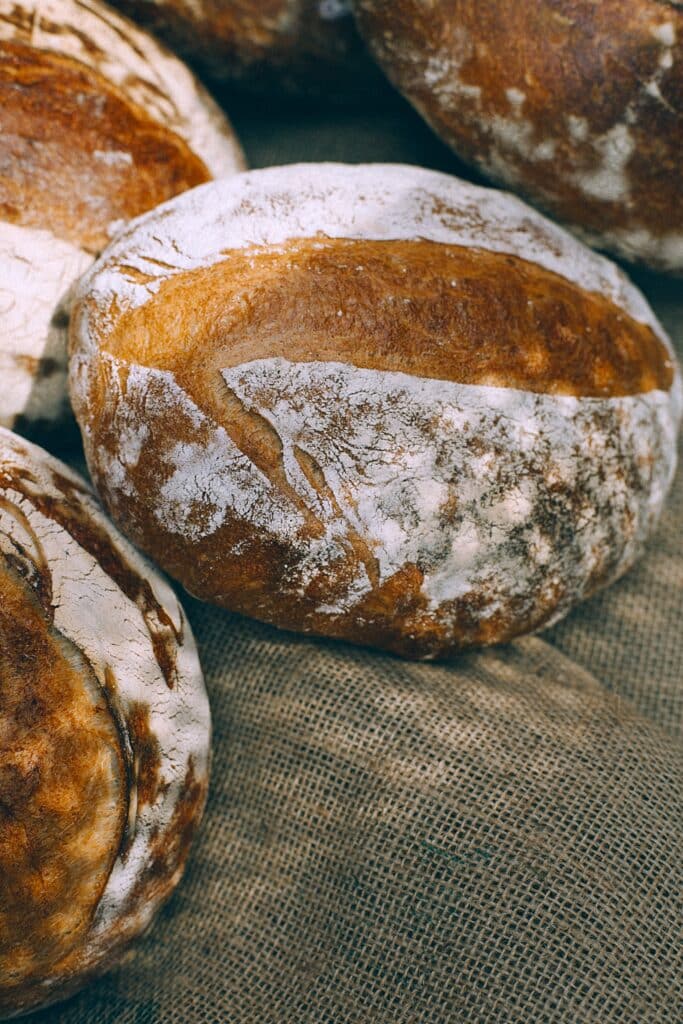Panadero’s Death: His Sweet Bread, Never Absent Bolillo and Our Beautiful Pan Dulce
Author’s Memo
This writing is based on storytelling, common in Mexican culture. Someone recounted it to my friend’s dad, my friend to me, and so forth with inevitable variation after each share.
This style of folklore is popular among the community for reasons ranging from insight into morality to an engaging pastime. In most cases, there is truth in the details we chose to explore. Sometimes these truths allow the audience to arrive at new realizations about lifestyles distinct from theirs.
The stylistic features of this fiction piece include the absence of periods, uppercase letters (except for both character’s name and voice) with the intent to share and explore the mindset and perspective of the characters.
The setting takes the reader to the town of huatajo, somewhere in rural Mexico. Which is proper to the setting of this story, which suggests a town unbound from the grasp of modernity and the valuation of time.
In this writing, some characters are prone to self-censorship. At times, opting to allow silence or an unfinished thought to conclude an idea enveloped in complex feelings.
“It is important to note that Mexico’s melting pot of cultures consists of people from the old world and those native to the Western Hemisphere.
This story encourages the reader to pronounce several Spanish words such as Panadero and bolillo to create a closer tie to the characters culture and outlook of life. By using The International Phonetic Alphabet (IPA), linguistic tools are provided to help with the sounds and pronunciation of culture-centered terms of this writing. In Spanish, this linguistic tool is called El Alfabeto Fonético Internacional (AFI).
It is important to note that Mexico’s melting pot of cultures consists of people from the old world and those native to the Western Hemisphere. Which include the French, Irish, and many others who brought with them specific ideologies that survived the test of time. Allowing for a diverse notion of culture.
Every culture has a transformative nature which allows for some to change faster than others. On example, would be those individuals who choose to emigrate. In which the transformative nature of their culture comes sooner than someone who chooses to stay in rural Mexico. Such is the case with the characters in this story who at times experience overwhelming boredom or have limited advancement opportunities aside from those they are expected to fulfill.

Panadero’s Death: His Sweet Bread, Never Absent Bolillo And Our Beautiful Pan Dulce
from atop of huatajo’s el lobo hill, sometime after the revolution, Jorge sat with friends damning the barrens on leisure felt throughout town, a place where daylight usually survived on gossip about the prettiest women in town, or the blood feuds that crossed town lines, and rather often how Jorge and his pals would refer back to their collective memory of simplicity, in those instances of budding recollection, memories of sweet bread would always be a topic of conversation, having always been a staple and forever feeding comfort in all their homes
in huatajo the local Panadero /pa-na-ˈðe-ɾo/ made his rounds most days cycling up and past Jorge’s house with a boxed cart filled with sugar dusted sweet bread and the never absent utilitarian bolillo /bo-ˈli-ʝo/ which is rarely too sweet, too round, too anything
aside from being the most available and inexpensive source of nourishment for the townspeople, the added beauty of the accompanying pan dulce made living in destitute that much more tolerable
the bolillo is a utilitarian food
it can be eaten as a dessert when topped with butter and sugar
or as a side for a meal,
while the colors baked atop the sweet bread
merely yield the embellishment of a veiled hope
“the bolillo is a utilitarian food
images of the bolillo and various sweet bread types adorned the cart, they’d been brushed on some time ago, the once colorful tint of the images still fading
yet there was one thing that made this Panadero interesting among the townspeople, it was the way by which he carried out his labor in distributing the sweet bread, rather than stopping at each home as he cycled uphill, he objectively concluded to stop at homes only after having reached the hills summit, then he would distribute his life’s work as he cruised down and back toward town, all the townspeople accepted this and soon after, nothing else was said about the odd mannerism, for them the subtle swirls of the pan dulce were worth the wait, the Panadero, like a clock’s seconds hand, would pass and circle back to their homes, day after day
somehow today was different, it wasn’t the off-feel of an elusive early-afternoon or the fact that it was a few degrees hotter than yesterday, nor the embrace of austerity from the surrounding landscape, or a forgotten expectation that softly burdens, it was something else, something that almost always goes unnoticed except when intrigue nestles comfortably in a thought, or a sentiment manages to peer through a sigh
it was the feeling of an afternoon suffused in atardecer-red /a-taɾ-ðe-ˈseɾ/ and Jorge’s feyly gaze onto the curves of the road that swirled up haphazardly to his home, which reminded him of the colorful swirls in sweet bread that imbue permanency moments before the first bite is taken
“today is different after all, although I suppose every day is different, often in every few dozen, a seemingly perfect bolillo can be too sweet and at its last bite leave a yearning for fulfillment
the curves of the road were there before him, yet he always found intrigue in why anybody would not simply lay a road straight up to the top of the hill, who decided how he and others from el lobo hill should walk, run or horseback up to their homes,
by happenstance Jorge’s quiet brown eyes, from the top-half of the hill, caught sight of the Panadero’s cart, it was quite a ways down and even from that high up the weathered colors of the cart shone, Jorge found a small obsession in the way the Panadero made it seem so effortlessly the way he quickly arrived at every turn
in dreams
the Panadero often practiced pedaling uphill
while the weight of a loaded cart refused to give leeway
but most of his dreams only lasted
to dawn’s last dew
or when a squall neared the town
halting all deliveries
today is different after all, although I suppose every day is different, often in every few dozen, a seemingly perfect bolillo can be too sweet and at its last bite leave a yearning for fulfillment
the Panadero continued to make his way up the hill and a minute or so later Jorge hurried to stand as he mumbled indiscernibly, this unsettled even the most unflinching among the bunch, the others also stood at his side, awkwardly having wished to stop a few steps before the spot on which they now stood, he reached for a rifle, one of the few items he inherited from his family, and they from the revolution, though that would mean it was more of a remittance than an inheritance, and with a crude tone Jorge said,
-‘I wonder if my aim is as good as I remember’
in dreams
Jorge recalled
the brown of the bolillo, the red of the blood
two colors steeped in revolution
through deathless contrast
the gunshot rang out into the valley, as Jorge motionlessly stood with the rifle in hand, still tingling through his fingers from the kick of the rifle, he began walking downhill for a few minutes with a menacing, albeit peaceful, ring in his ears resulting from the jolt of the shot, his friends stayed behind unsure of what had happened, or what would come next
Jorge had lived alone in his family’s home for what seemed many years, and though his friends kept him company, he could not help but feel how the world can at times seem so vast and, on a whim, enclose on itself
in the distance he could see the Panadero lying face up on the ground as if he were sleeping, Jorge imagined it was more comfortable this way, rather than if he were lying face down, as he closed the distance betwixt himself and the body, he also saw blood, slow to disperse from the torso, Jorge wasn’t too concerned where the bullet made impact, his fascination focused on the scattered sweet bread and bolillos which laid atop of the partly muddied and reddened earth, they’d fallen out of a weaved basket which previously adorned the cart
“sometime in following years Jorge found himself in a brawl that would take his life, an expected lifestyle hazard, granted, since then not much had changed in the span of these accounts, for the townspeople, the past is as consequential as to what tomorrow will bring
in dreams
Jorge recalled
the brown of the bolillo, the red of the blood
two colors steeped in revolution
through deathless contrast
Jorge kneeled, reached for a bolillo, and dipped it in the pooled blood, took a bite, then, once satiated, whenever that moment came to be, he stood and walked up the curved roads of the town
the town became well-acquainted with the death of the Panadero, if there had been a dispute as to the cause of his death it quickly dissipated as did the sweet bread on all breakfast tables, that is, till the Panadero’s son accepted his inherent role of continuing the family business
sometime in following years Jorge found himself in a brawl that would take his life, an expected lifestyle hazard, granted, since then not much had changed in the span of these accounts, for the townspeople, the past is as consequential as to what tomorrow will bring
Credits
Image of Panadero by Maria Orlova for Unsplash
Featured Image by Nathan Dumlao for Unsplash
Learn More
New to autoethnography? Visit What Is Autoethnography? How Can I Learn More? to learn about autoethnographic writing and expressive arts. Interested in contributing? Then, view our editorial board’s What Do Editors Look for When Reviewing Evocative Autoethnographic Work?. Accordingly, check out our Submissions page. View Our Team in order to learn about our editorial board. Please see our Work with Us page to learn about volunteering at The AutoEthnographer. Visit Scholarships to learn about our annual student scholarship competition.
Francisco J. De León Alonso is a bilingual writer from Fresno, CA. and is fond of contemporary classical music. He earned his B.A. in Spanish and Chicano Studies at Fresno State where he wrote for the University’s newspaper, as a reporter for the first bilingual edition. Currently, he is working as an RSP Substitute Teacher. His poems have been published locally in CWAA’s Flies, Cockroaches and Poets Journal, The Fresno City College Review, and most recently in Notes. For more information visit his Instagram page @ovanityofsleep.










